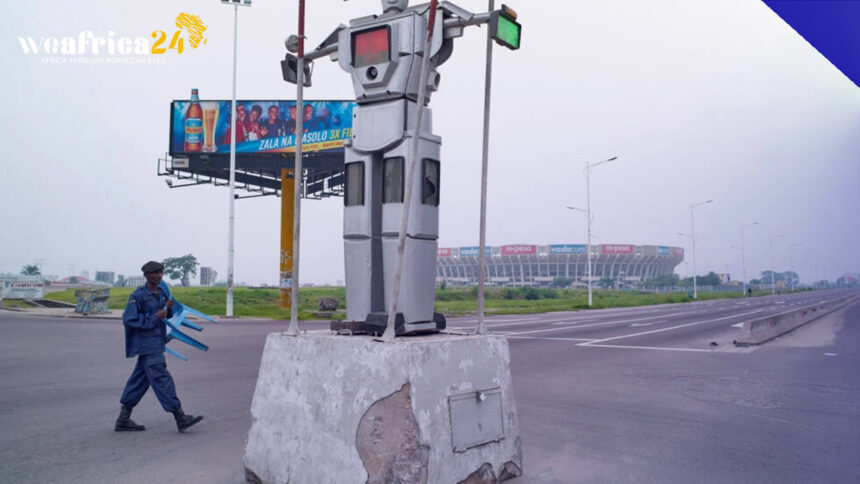Scores of youths staged demonstrations outside several Western embassies, demanding a more robust international intervention to end the violence in the eastern Democratic Republic of Congo (DRC). Following appeals from NGOs, certain Western embassies have responded, calling for a de-escalation of the situation.
On the ground, armed clashes between the Armed Forces of the Democratic Republic of Congo (FARDC) and the M23 continue approximately 30 kilometers from Goma, exacerbating the already critical humanitarian crisis in the North Kivu province. Displaced individuals are streaming towards the regional capital.
Meanwhile, images of government officials with hands over their mouths and fingers simulating a gun at their temple have circulated widely on the internet. This representation, popularized by the DRC national football team, aims to denounce what some perceive as the international community’s silence regarding the ongoing security and humanitarian crisis. In this context, dozens of youths demonstrated on Friday, prompting Western embassies to react and reaffirm their position on the conflict.
The United States Embassy in Kinshasa issued an unequivocal call, stating that Washington supports a “strong, stable, and peaceful” DRC. Ambassador Lucy Tamlyn reiterated the conditions set by Félix Tshisekedi before any dialogue with Kigali, emphasizing that her country is convinced that peace can only be achieved if the sovereignty and territorial integrity of the DRC are respected. She also reiterated her condemnation of the M23 and accused Rwanda of supporting this movement, which has been subject to US sanctions since 2013.
In Brussels, a similar tone was struck on Friday. The Belgian Minister of Foreign Affairs also called on Rwanda to cease all support for the M23, while reminding Congolese authorities of the need to ensure that loyalist forces do not collaborate with the Democratic Forces for the Liberation of Rwanda (FDLR).
Meanwhile, the United Kingdom emphasized that over 135,000 people were displaced in a single week in towns and villages of North and South Kivu, with tens of thousands fleeing their homes following M23 attacks on Wednesday, February 7. Consequently, London condemned the M23’s violent offensive and pledged to support initiatives aimed at fostering dialogue and promoting a return to regional peace consolidation processes.
In this light, Huang Xia, the United Nations Special Envoy for the Great Lakes region of Africa, met with João Lourenço this week. The Angolan President is the designated mediator by the African Union in this crisis.







